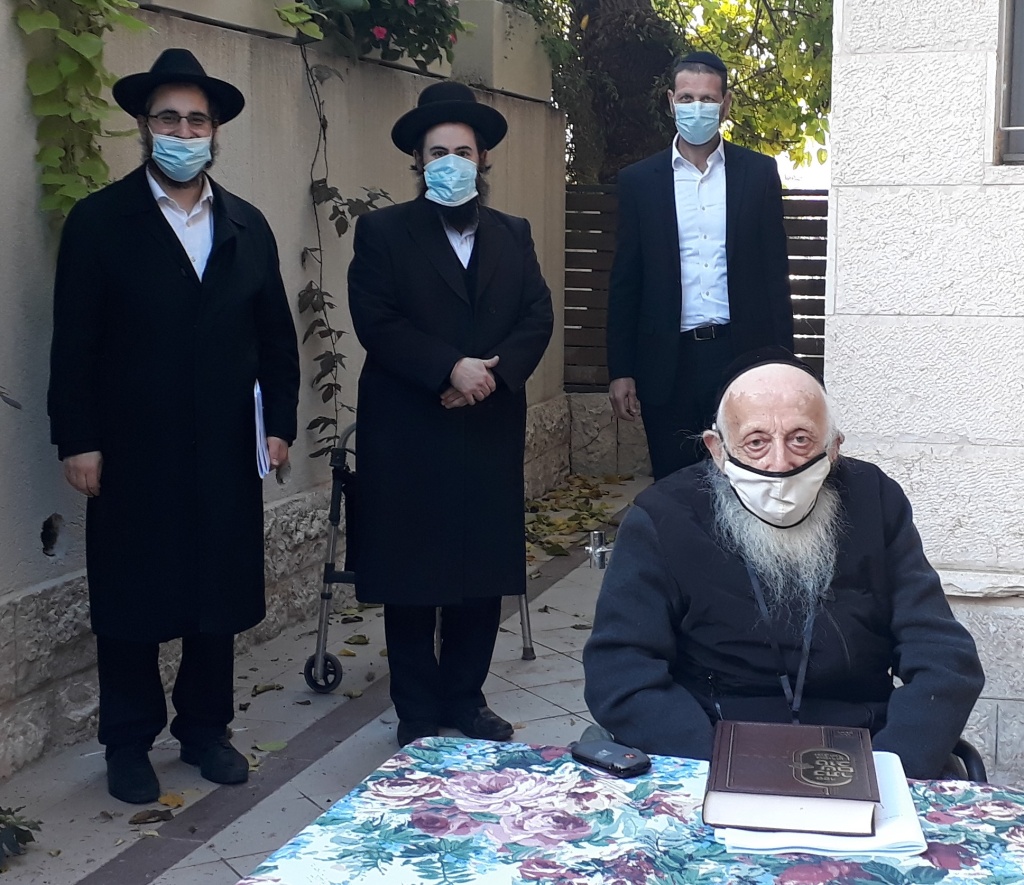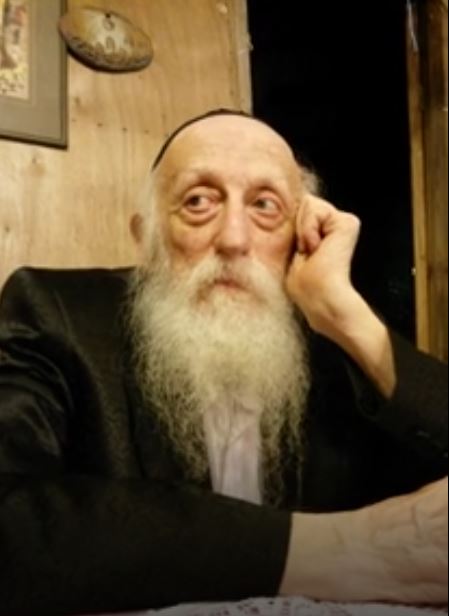At the turn of the millennium, I was living in Israel and working as a multimedia programmer for Davka Corporation, creating computer games for Jewish children. My work necessitated access to the World Wide Web, and as a normal male I found it a struggle to avoid inappropriate material. This was before the advent of filters, and the Jewish community still preferred to sweep the issue of the Internet under the rug rather than address it directly, treating it as a taboo. Jewish publications like Hamodia and Yated were forbidden by the editors from even mentioning the word “Internet” in their articles and columns.
In order to keep myself strong, I developed a number of techniques that I found helpful. I began to see on various Jewish forums that I was not alone, and that a lot of frum people were finding the Internet to be a huge challenge. Many were simply throwing in the towel, believing it was a lost battle. I began sharing some of the methods that were helping me on these forums, and I started getting very good feedback. People began posting that they were inspired to give it another try, and they started sharing their own strategies and attitudes that were helping them.
In the summer of 2007, this spurred me to create a small website, on which I began bringing together tips, advice, and stories, so I could point people to a one-stop site where they could find inspiration and techniques. Incidentally, I purchased the URL of the first website guardureyes.com, on July 8, 2007 — within ten days of the release of the very first smartphone (the first generation iPhone debuted in the US on June 29, 2007). Perhaps Hashem had decided that as much as the Internet had been a struggle until then, with the advent of the smartphone, we wouldn’t even stand a fighting chance. In His mercy, He felt it was time to give klal Yisrael some tools and support.
After I had posted a few pages of information on the site and began sharing the website on various forums, someone reached out by email suggesting that we begin a forum of our own, which he even offered to host. Once our forum went up, things really began to take off. Suddenly there was a place in the Jewish community for people to post anonymously about their struggles and share inspiration. Hundreds of people started posting, and over time it developed into a close-knit community of support and camaraderie. People began asking for daily inspiration to keep the yetzer hara in check, so I began sending out chizzuk emails each day, many of which contained inspiring posts taken directly from the “soldiers in the trenches” on our forums. As more and more techniques and ideas were developed on the website and shared by the community, I compiled the GYE Handbook, which was basically a range of strategies and attitudes, organized in progressive order, from the typical normal struggles all the way to full-blown addiction.
It was around this time that Rabbi Twerski entered the picture. My parents had been fans of Rabbi Twerski’s books ever since I could remember, and I had also been close with one of his grandchildren while learning in the Yeshivah of Philadelphia in the 1990s. I realized that as both a rabbi and a psychiatrist, and especially with his expertise in addiction, Rabbi Twerski could likely be very helpful to our fledgling website.
In September 2008, I reached out to him by phone and described the challenge that so many people were facing, told him about the website and forum that we had put together, and described the wonderful success we were seeing. He responded enthusiastically and confided that he had even considered a website once to help people with this, but he added:
Initially, when I thought about this a long time ago, the question I had was, inasmuch as Internet is involved in the problem, can you have someone go to the Internet to deal with it? But I suppose there’s no choice, they’re going to go to the Internet anyway.
After reviewing the website, he responded:
There’s no question that this is an excellent place to refer to, I may even possibly make some contributions to it. I think that some of the guys in SA [Twelve Steps groups dealing with lust addiction] here have to know about this — I don’t know if they do. I will try to get the word around. Have a lot of hatzlachah, and I’ll try to and help in whichever way reasonably I can.
His policy in 2008 was not to give endorsements. But a bit more than a year later, he shared with us that he was getting many calls about this issue and had nowhere to refer people to. Rav Aharon Feldman, rosh yeshivah of Ner Israel, had just written a powerful endorsement, and Rabbi Twerski was excited that there was finally a place for people to get help and support. At that point he decided to officially join forces and wrote a warm letter of endorsement in January 2010 (below):
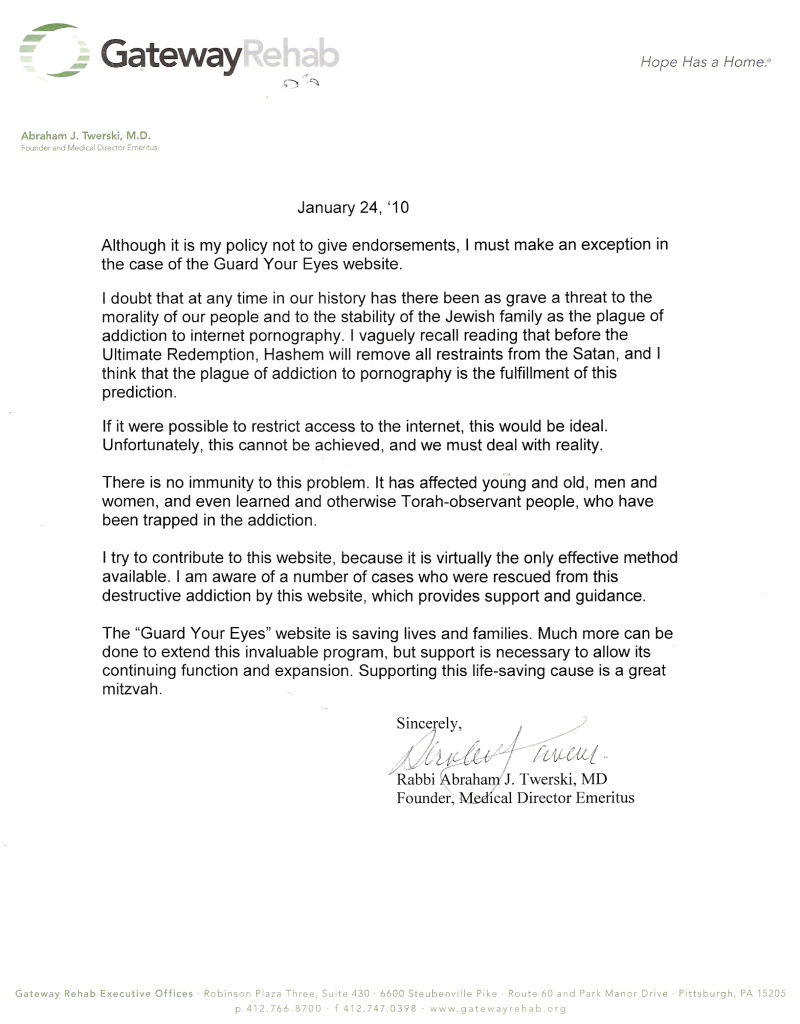
Over the years, Rabbi Twerski sent me many articles that he wrote on the topic and answered many sticky questions that came up. When my partner, Yechezkel Stelzer, joined me in 2010 and the website started to grow, we began fundraising so we could bring GYE to the next level and turn it into a really professional operation with multiple tools and services. Rabbi Twerski graciously agreed to come speak at our first parlor meeting in September 2010 at the home of the well-known askan and philanthropist Rabbi Avraham Wolfson, z”l.
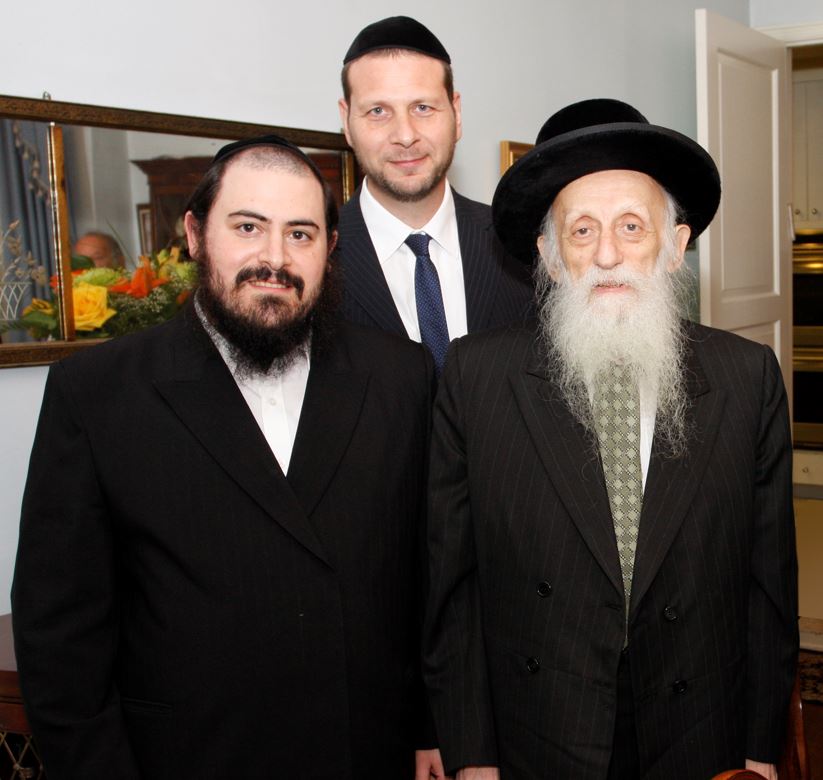
During his talk, Rabbi Twerski read a letter from a young man who had reached out to him for help and who ended his letter with the words, “You are reading the last gasp of a drowning soul.” Rabbi Twerski said that at that point, he had no answer for this young man, since Guard Your Eyes didn’t exist yet. He stressed, though, that he no longer had to worry when he received such letters, since he finally had a resource to which he could refer people.
When we were in Toronto together with Rabbi Twerski in 2011, although he was already over eighty years old, he came with us during a snowstorm to meet with potential donors, even joining us to knock on doors. He also came to speak at a dinner in Monroe in the chassidic community of Satmar in 2013, when we launched our Yiddish website.
Over time, I became very close with him, and when he moved to Israel in 2015, I would visit him often. He would do anything he could to help our organization, despite his weakened state — picking up the phone to call potential donors, joining us on Skype meetings with donors, and speaking at various functions. In 2017 he put out a book called Teshuvah Through Recovery, which contained an entire section of writings by myself and various Guard Your Eyes members.
He autographed and wrote thank-you notes on dozens of copies of the book for our donors, despite the fact that writing by hand was already difficult for him at the time.
In the Introduction to the section of this book that he called
“Frum Jews in Recovery Speak,” he wrote as follows:
The plague of inappropriate material on the Internet has affected the type of people whom we would never have suspected are vulnerable: yeshivah bachurim, kollel yungeleit, and the most ultra-religious Jews. The Satan has won a battle. This scourge destroys people’s Yiddishkeit totally, and the sacrifices are the families that are broken up and the innocent children who suffer.
But in every generation, God in his kindness sends down someone to sustain Judaism, such as the Baal Shem Tov with Chassidus, Rav Yisrael Salanter with the mussar movement, and the Chafetz Chaim with shemiras halashon. We are extremely fortunate that several dedicated people have developed a website to help frum Jews who are caught in this trap: GuardYourEyes.com. I have been involved with the website since its founding (in 2007) and have contributed many articles and joined some of their phone conferences as well.
Lecturing about yiras Shamayim and shemiras habris is mostly ineffective once a person has become addicted. And in my forty years of psychiatric experience, I can testify that traditional psychiatry and psychology are also not effective on their own. The only thing that works is a support network, primarily of people who have recovered from this terrible condition. Guard Your Eyes offers this anonymously, allowing thousands of religious Jews to get help where they otherwise would have been unable to. This organization has saved many thousands of individuals and families. Their website provides a variety of tools, counseling, and support for affected people as well as their spouses.
I get an average of five calls a week about this issue, and before Guard Your Eyes was around, I didn’t have anywhere to send people. The organization’s success rate is phenomenal. I am personally aware of many, many people who have been saved by Guard Your Eyes, and I know of no other force that has been as great in saving families as this organization.
I am privileged to have access to some of the correspondence of people in recovery with GYE, and I’d like to share it here, because there is a lot that we can learn about teshuvah and recovery from those who have been there themselves and come out of it, often becoming much better people in the process.
Rabbi Twerski was always available to answer questions that came up on Guard Your Eyes. He was exceedingly humble and even consulted with us on various cases that came to him.
The last time he came to speak at a function that we arranged was in 2018, at the launch of PA (a group like AA that deals with Internet addiction), which was an experimental Twelve-Step fellowship that GYE helped launch. He was already wheelchair bound and it was very difficult for him to come, but he felt the urgency of the cause. I helped him in and out of my car and wheeled him into the auditorium, where he spoke to a crowd of mostly addicts and said:
Fifteen years ago I had no place to send people with these struggles. Psychologists and psychiatrists have not had much success with addictions. But since Guard Your Eyes came around, I have sent many people there. And I think that upon launching a new Twelve-Step Program, we are entitled to say the berachah of Shehecheyanu. In 1935, two alcoholics began AA. There are now millions of people in the Twelve-Step Program. Even saving one soul is a whole world. And those of you who consider yourselves baalei teshuvah, remember what the Talmud says: “In the place of baalei teshuvah, even perfect tzaddikim cannot stand.” You have a strength, and the only way to keep this strength is to give it away. If you keep it to yourself, you won’t advance, but if you share your experience with others, you will benefit by it and others will benefit by it.
On my many visits to his Jerusalem home in Katamon, we shared divrei Torah and experiences, and he shared with me stories of his life. On a visit to him in August 2019, I asked him if he was still writing books. He told me that he used to write two books a year, but now he had to sweat bullets to write even one paragraph. He shared that he had written a few pages of a new book but did not know what would develop or if he would manage to finish it. I asked him what the topic was, and he said it was based on the chassidic idea that we need to uplift the physical world and bring it into the spiritual realm.
Indeed, this was his final book, and on my last visit to him in December 2020 with my partner, just a few weeks before he passed away, he told us that the book he had been working on was finally coming out. He had called it Tallis and Tefillin, Bagels and Lox, and he told us it was his ninetieth book, containing a hodgepodge of everything he remembered from the last ninety years.
I believe the topic of this book was no coincidence. Uplifting the physical to the spiritual was a constant theme of Rabbi Twerski’s entire life. I don’t know of anyone in our generation who ventured so deeply into the physical world, into the world of academia, medicine, psychology, dealing with the lowliest, most broken people in society, such as addicts, yet he succeeded in uplifting the entire world with him into the realm of the spiritual. Rabbi Twerski taught millions of people, Jew and non-Jew alike, that human beings are not just “intelligent apes” but are composite beings who can only find contentment and happiness in the fulfillment of their spiritual potential.
Having founded the Gateway Rehabilitation Center in Pittsburgh, which helped tens of thousands of alcoholics, Rabbi Twerski had a special affinity for helping people with addictions. But the only addiction Rabbi Twerski himself suffered from was, in his own words, “an addiction to writing books.”
Indeed, on that last visit, he shared that he was actually working on his ninety-first book, which he said would be for bachurim who don’t know enough about our gedolim from previous generations. He wanted to put together a book with short chapters on many great personalities in an easy-to-read fashion that would sum up the main character of these gedolim in just a few pages. He even asked us for our help in researching anecdotes, and he mentioned that he had already submitted chapters on the Shaagas Aryeh, Rav Yisrael Salanter, and the Chafetz Chaim. Unfortunately he passed away a few weeks later on January 31, 2021 (19 Shevat 5781), at the age of ninety, before he was able to finish that book.
Rabbi Twerski was always there to help GYE until his final days. Only six weeks before his passing, he wrote a warm endorsement for a book we were putting out together with Dr. Shloimie Zimmerman about how to speak to our children about intimacy and kedushah struggles. In the endorsement, Rabbi Twerski compared the epidemic that our youth are forced to contend with today to the plague of COVID-19. He mentioned that although a vaccine had recently come out for COVID-19, no vaccine was yet available for our youth in the area of kedushah. Unfortunately, Rabbi Twerski himself caught COVID-19 only a few weeks later, about a month after having gotten the first dose of the vaccine, and just before he was scheduled to get the second dose. In his weakened state, he sadly didn’t pull through. Although he often told me in his last years that his memory was gone and that he could no longer learn Gemara, his beautifully worded endorsement (see next page) was testimony that his clarity of mind stayed with him until the very end, as well as his boundless dedication to the klal.
In his unique capacity as a rabbi and a doctor to whom thousands turned for help, Rabbi Twerski was a firsthand witness to the maladies that plagued our community, and he was never afraid to speak out, boost awareness, and awaken our community to take appropriate preventative measures. He was the first to crusade against the spread of alcohol abuse in religious circles, once thought to be an exclusively non-Jewish problem. Later he rallied against drug abuse in our community, and he was also the first to bring attention to the unfortunate phenomenon of spousal abuse in some of the “best” frum homes in his contentious book The Shame Borne in Silence. Rabbi Twerski was always the champion of the underdog, a stalwart supporter of the abused and broken.
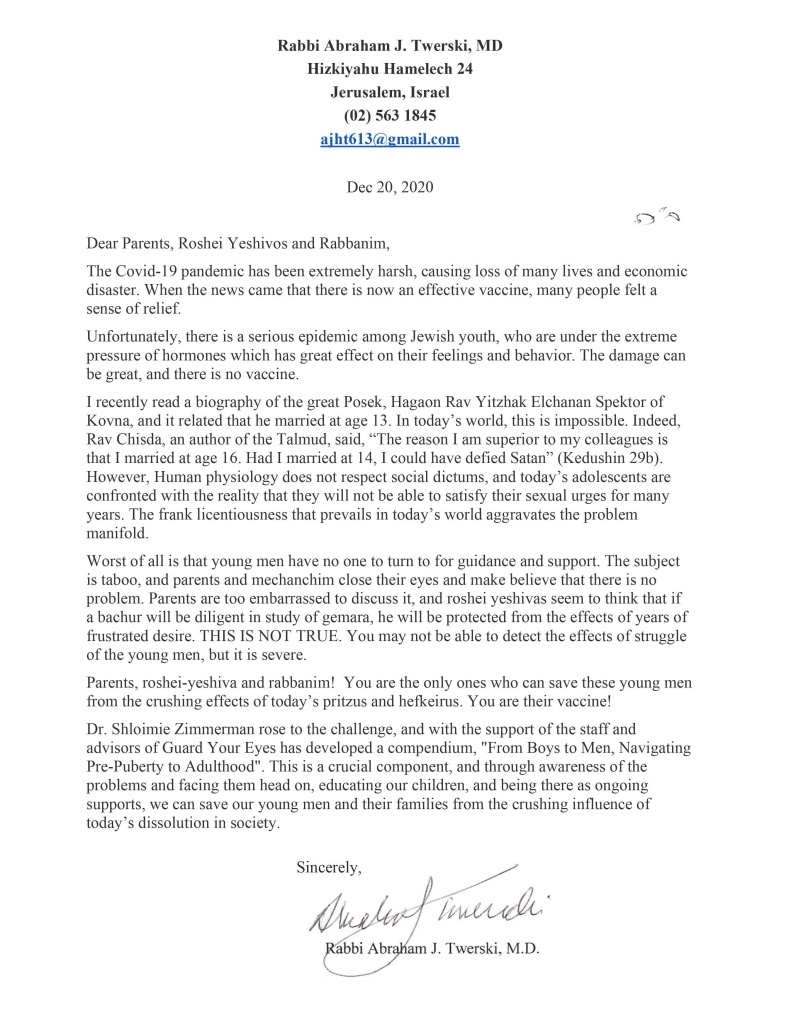
We called our new book His Final Mission because I believe that in his final years, although he was retired, Rabbi Twerski felt he could still make a difference in helping address the malady of Internet addiction. This had only become a prevalent problem in the last two decades of his life, due to the unprecedented availability and ease of access that came along with the Internet and mobile technology. He used every opportunity to speak about it, often mentioning Guard Your Eyes as one of his “absolutely favorite” organizations, claiming that GYE is the only one dealing with the biggest mageifah of our generation and calling it “literally a pikuach nefesh.” Rabbi Twerski related that he was receiving a constant deluge of letters and calls about the issue, and the only solution for these people was to send them to Guard Your Eyes.
In showing his support for Guard Your Eyes, Rabbi Twerski wasn’t just helping us; he was continuing his lifelong battle against the maladies our time, speaking out about the issues no one else wanted to address, and championing the cause of the addicted, brokenhearted, desperate souls whose suffering he knew and felt, perhaps more than anyone else.
Shortly after his passing, we compiled this book in his memory. It contains correspondence between Rabbi Twerski and myself as well as with the members of the Guard Your Eyes community, in addition to many articles that he wrote for us on the topic of lust addiction and the yetzer hara over the years. We also put together this related website with links to his books, hundreds of his articles, videos of his talks, and pictures from his remarkable life.
It is my fervent hope that this book serves to inspire more people and continue his legacy, as a tribute to the memory of this great yet humble man I am so grateful to have known. May his memory be for a blessing.
Yaakov Nadel, Cofounder GuardYourEyes.com
